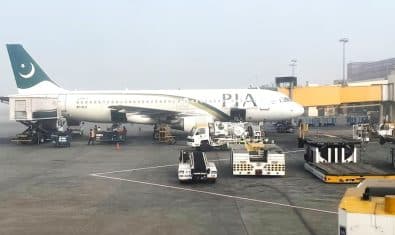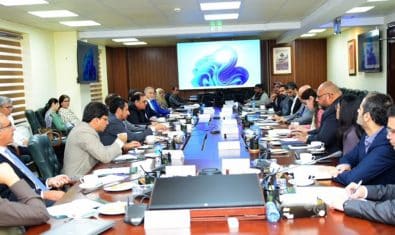The Competition Commission of Pakistan (CCP) has proposed the establishment of one-stop portals for licensing, permitting, and registration of small and medium enterprises (SMEs).
According to the report of the CCP on SMEs, striking the right balance between a conducive regulatory framework and a rational taxation system is crucial for fostering an environment where SMEs can thrive.
Recent insights gleaned from a comprehensive study on SMEs by the Competition Commission of Pakistan (CCP) spotlight the urgent need to overhaul the regulatory milieu in which SMEs operate. Pakistan’s position at 108th out of 190 countries on the World Bank Ease of Doing Business Index in 2019 underscores the necessity for reform.
Through meticulous analysis of Pakistan’s regulatory landscape, coupled with focused discussions with SMEs, a pressing revelation has come to light: a labyrinth of at least 12 overarching regulatory layers encompassing all businesses, with an additional four administrative processes for foreign entities.
In the manufacturing sector alone, businesses are contending with a staggering 50 laws, coupled with numerous subsidiary regulations enforced by over 40 national and subnational agencies. However, these regulations are often accompanied by convoluted processes, resulting in high operational costs, particularly for SMEs. Thus, the need for an all-encompassing reform of the regulatory environment becomes ever more imperative.
Proposals for the establishment of one-stop portals for licensing, permitting, and registration have emerged as potential game-changers.
These integrated platforms hold the promise of alleviating the burden on SMEs, curtailing transaction costs, and boosting overall operational efficiency. In tandem, there is a growing call for simplification and transparency in the process of licensing and registration, recognizing that businesses flourish most vibrantly when they operate within transparent markets that offer easy access to critical information.
Concurrently, recent research delves into the intricacies of Pakistan’s taxation structure, shedding light on a complex and non-conducive system that poses challenges to SMEs. A study conducted by the Small and Medium Enterprises Development Authority (SMEDA) underscores the intricate web of tax compliance, involving up to 16 documents for income tax registration alone.
Additionally, SME taxpayers navigate through around 50 procedures during a tax year, which inevitably inflates the cost of doing business. The prevailing tax structure, which has prioritized revenue generation over growth facilitation, raises concerns about fairness, efficiency, and transparency.
A critical issue that surfaces from a demand survey and targeted discussions with SMEs is the predicament of withholding tax (WHT) deductions for registered SMEs. This situation becomes particularly complicated in the context of the sizable informal SME sector where transactions often lack proper invoices or records. Consequently, the onus of WHT compliance disproportionately falls on registered SMEs rather than suppliers, creating an additional hurdle for SMEs.
To address these pressing issues, the recommendation for simplified tax filing procedures and the availability of information/forms in the Urdu language holds significant weight. By embracing these changes, Pakistan can create an environment where SMEs can flourish, driving economic growth, fostering innovation, and positioning itself as a competitive player in the global business arena, CCP added.





















